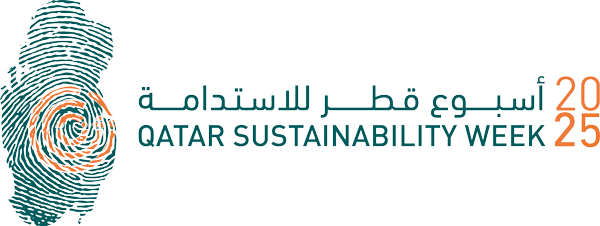ACS is committed to the following initiatives in order to make our school kinder to the environment and more sustainable:
ENERGY
Using energy more efficiently and opting for renewable energy sources is essential for combating climate change and for lowering an organisation’s overall environmental footprint.
We acknowledge that we are high energy users and our energy spend is substantial with the size of our campus and facilities on offer. However, we are committed to making our school buildings more energy efficient and ensuring that any new developments are as sustainable as possible. We also continue to encourage our school community to save energy.
ACS is continually working on energy efficiency upgrades, across all four campuses, particularly in improving the efficiency of lighting. The new ACS Campus in Doha, benefits from several energy saving initiatives, including:
· High performance insulation on all external walls
· Solar heating for all water heating within the sports centre.
· Use of heat recovery systems
· Comprehensive use of LED lighting
OBJECTIVES
· It intended to introduce energy monitoring systems, with the intention of introducing an online energy reporting tool, similar to that utilized by ACS in the UK. This will provide ACS Doha with far greater knowledge of how the campus uses energy and how best this can be minimized.
· Following the introduction of energy monitoring solutions, it is intended to carry out energy surveys to identify further measures that might be implemented to further increase energy conservation.
· We will evaluate how the ACS Doha building management system (BMS) can further reduce energy consumption.
· We will continue to review our campus for climate change resilience and implementation adaption measures.
· We are also planning on rolling out staff energy efficiency awareness training and will recognise and share success where a difference has been realised through targeted actions.
WASTE
Unsustainable consumption is one of the big issues of our time, and high on the public agenda. The natural resources needed to make all of the products that we use are running out, and their disposal is impacting our rivers, oceans and air. There is a human cost too, with our desire for cheap disposable objects driving poor working conditions and a rise in slavery.
Waste disposal and recycling is therefore a key area of focus in our business and we intend to more closely monitor the waste generated from our Doha campus and report on our recycling rate and waste streams, with the intention of making improvements as they are identified. ACS is proud to have achieved zero to landfill status in the UK, significantly minimising our environmental impact in this area, and this will continue to be an aspiration for the Doha campus.
We will to introduce food waste bins in the school kitchens with the intention that all food waste will be used to create high-grade fertiliser. We will work with our catering provider to ensure all waste is recycled/reused.
OBJECTIVES
· ACS is supporting efforts to move to the circular economy. We apply the “Reduce, reuse, recycle, recover” hierarchy to avoid sending waste to landfill where possible, decreasing the overall amount of waste and increase recycling rates. We will continue to drive the move from general to recycled waste streams and issue our staff and students “waste recycling guide” in order to increase our recycling percentage.
· We will establish targets for the coming year to improve our performance in waste reduction and recycling percentage. Having achieved a zero to landfill status in the UK, we will aspire to achieve this status at the Doha campus.
· We have set a goal to increase our recycling percentage in the UK to 55% within the next two years. In Doha we will implement a system for measuring our general and recyclable waste, with the aim of achieving results on par with our other campuses.
· We will seek to introduce catering solutions that reduce single use plastics, in particular plastic bottles, coffee cups, water cups and plastic cutlery which we identified as key priorities based on the audit of waste.
WATER
Water is essential to life. It constitutes up to 65% of the human body and 90% of the structure of plants. Thus, if deprived of water, no living being can survive for long. Nevertheless, this fundamental element to existence is seriously threatened. We use water in many activities across the school, from grounds irrigation, washrooms and kitchens to laboratories and cleaning. A school that is equipped with water conservation devices may use significantly less than other schools, particularly in this hot and dry environment, we need to manage our water use whilst maintaining the biodiversity of our school grounds.
OBJECTIVES
· We will improve our data collection on water within our own operations and identify opportunities to have a measurable impact in this area going forward
· We commit to designing, operating, and maintaining our existing and new facilities to ensure water efficiency across our estate
· We will reduce our water consumption, through identifying leaks to reducing unnecessary loss, improving efficiency of equipment, and recovering rainwater and runoff where possible
· We will undertake a study to benchmark our average daily usage and use this data validation to highlight high usage. Where usage increases or is marked as high, we will investigate for efficiency initiatives and leak fixes, to ensure that we prevent water wastage
· We will investigate water saving devices such as cistern dams, flow restrictors and self-closing taps which save water and money. They are all proven, simple to apply and economic.
SUPPLY CHAIN
Modern supply chains, where many hundreds of companies are part of creating one product, present challenges around best practices in sustainability. We are committed to better understanding our supply chains and working towards greater transparency and responsibility towards people working in them. Our objectives include purchasing fairly traded, local, seasonal products and produce, using local businesses and small and medium enterprises and increasing the number of social enterprises in our supply chain.
ACS Facilities uses a number of suppliers to provide non-core support functions, e.g. facilities operations and catering. In line with progress by ACS in the UK, we intend to incorporate Sustainability commitments as a key consideration when appointing suppliers.
OBJECTIVES
· We will be rolling out new initiatives in the coming year to show that there is a better way to do business, working more closely with our suppliers. We will help suppliers embed sustainability principles within their procurement policies and specifications, and partner with our suppliers to provide more sustainable product options without cost impacts for our community.
· Over the next two years we aim to better understand the carbon impacts of our supply chain, and to achieve this we will focus on those with the highest carbon impacts.
· Sustainability considerations will be incorporated into all major new contracts to ensure we are purchasing from socially, ethically and environmentally responsible businesses.

